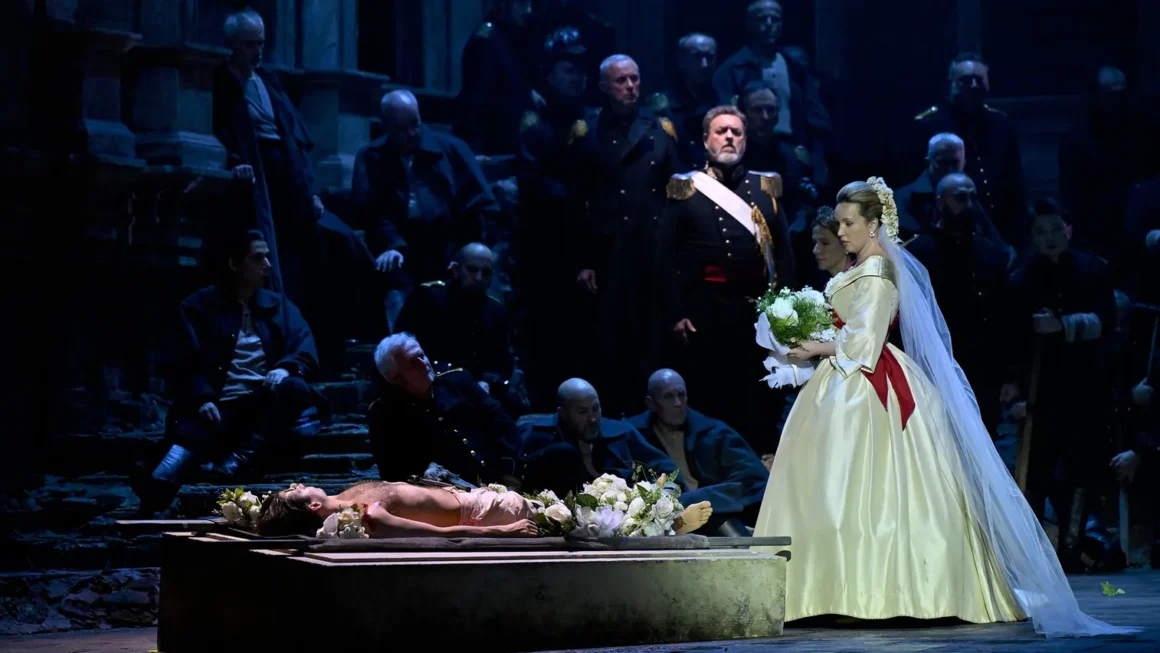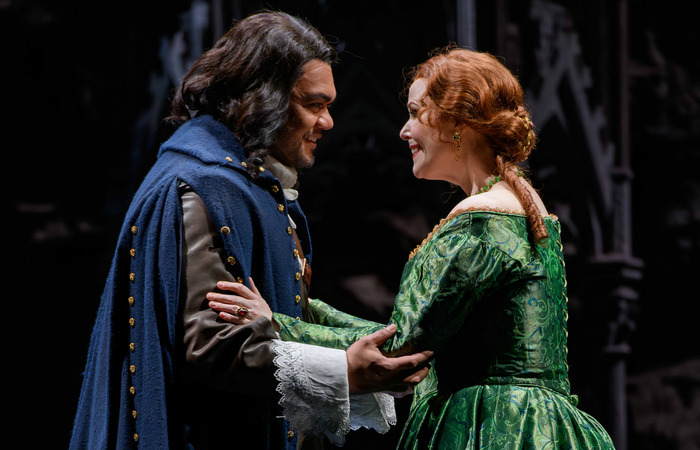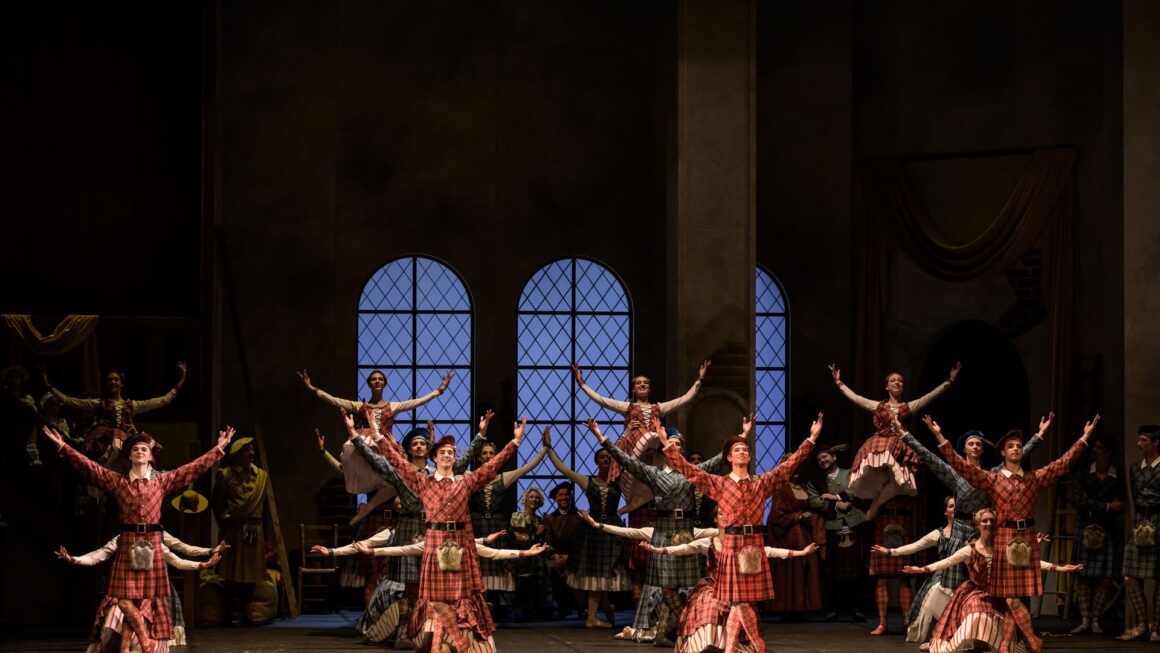Countless criteria can be considered to judge whether an operatic performance has been successful (or not). One of the most important – and most rarely achieved – is the ability to bring forth the music as a co-narrator: upon listening, the text becomes less (or even completely) indispensable for understanding the story the composer and librettist intended to tell. Not everything is conveyed verbally (especially in Wagner’s work). Not everything is graspable through the artists’ bodily expressions. And when what we listen to, and when the quality of what we hear, allows us to better understand the narrative and the intentions of the staging, the box is ticked.
On this precise point, and many others, the Lohengrin at Deutsche Oper Berlin is a true success. Firstly, the orchestra pit, masterfully handled with the utmost finesse by Constantin Trinks. With a measured tempo that grants access to a multitude of colours and textures, the conductor, a perfect alchemist of sounds, brings out the best that can be produced by the Orchester der Deutschen Oper Berlin, adjusting and shaping the play of intensities like a potter moulding the material to create his work. The staging, directed by Kasper Holten, is very understated but with effective markers, helping to recreate the expected environment in the context of the piece. It can be projected to a distant era, yet the parallels with current events are so striking (and inevitable) that it can easily be situated in the contemporary world.
Attilio Glaser, imbued with the greatest humility, while maintaining a stance that ensures perfect projection of his inexhaustible vocal resources and extraordinary intelligibility of the text, is the centre of gravity of this fabulous performance: it is towards him that our gaze turns and fixes as soon as he appears on stage, and it is through him that moments of pure lyricism fill the hall. Alongside her, Flurina Stucki portrays an Elsa profoundly human, with a breadth and intensity worthy of the most enthusiastic applause.
What a delightful discovery are the performances of Martin Gantner (Telramund) and Miina-Liisa Värelä (Ortrud) ! He is the quintessential Wagnerian baritone, with sharp diction and stage intelligence, an intimacy with the text he delivers as if a supernatural inspiration pours forth the words of a Telramund in every way exemplary. She is the embodiment of perfidy, dark in all her registers, a true pagan priestess who leaves behind a trail of misfortune. Finally, let us add the outstanding and equally exceptional performances of the excellent Dean Murphy and Byung Gil Kim, absolutely flawless from start to finish, contributing to maintaining the very high level of the performance.
Thus, the major achievement of this production lies in its ability to construct, both musically and theatrically, the fundamentally romantic universe of a very distinctive work from the Wagnerian repertoire, itself situated at the crossroads between his early works and his later creations. May other equally accomplished productions be reserved for us during the next operatic season of this great opera house that is the Deutsche Oper Berlin!
::::::::::::::::::::::::::::::::::::::::::::::::::::::::::::::::::::::::::::::::::::::::::::::::::::::::::::::::::::::::::::::::::::::::::::::::::::::::::::::::::::::::::::::::::::::::::::::::::::::::::::::::::
LOHENGRIN
Romantic opera in three acts
World première on 28 August 1850 in Weimar
Première at the Deutsche Oper Berlin on 15 April 2012
Cast: Heinrich der Vogler (Byung Gil Kim) • Lohengrin (Attilio Glaser) • Elsa von Brabant (Flurina Stucki) • Friedrich von Telramund (Martin Gantner) • Ortrud (Miina-Liisa Värelä) • Der Heerrufer des Königs (Dean Murphy) • 1. Brabantischer Edler (Patrick Cook) • 2. Brabantischer Edler (Álvaro Zambrano) • 3. Brabantischer Edler (Geon Kim) • 4. Brabantischer Edler (Stephen Marsh) • 1. Edelknabe (Natalie Buck) • 2. Edelknabe (Andrea Schwarzbach) • 3. Edelknabe (Kristina Griep) • 4. Edelknabe (Mahtab Keshavarz) • Chor der Deutschen Oper Berlin • Orchester der Deutschen Oper Berlin.




